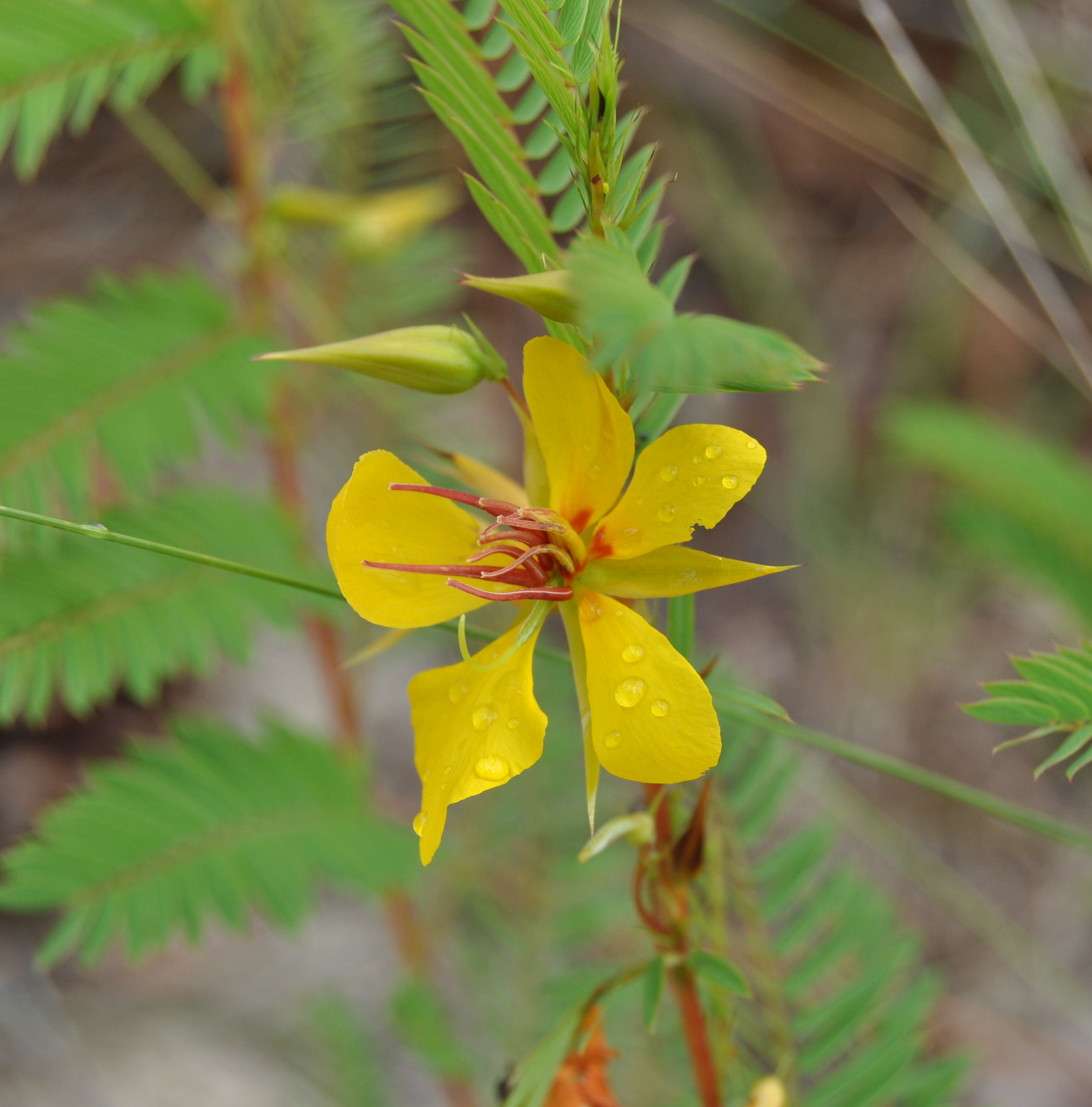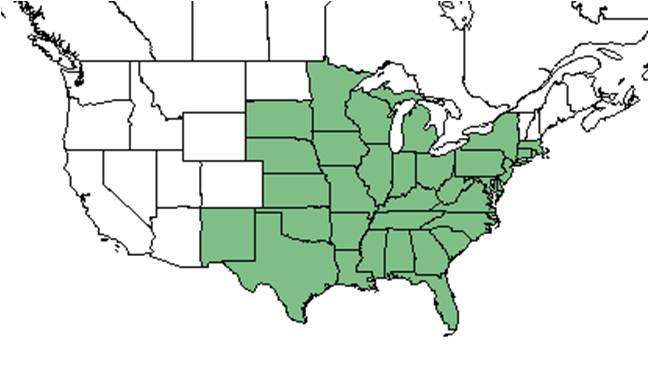Difference between revisions of "Chamaecrista fasciculata"
(→Conservation and Management) |
Krobertson (talk | contribs) (→Pollination) |
||
| Line 35: | Line 35: | ||
<!--===Fire ecology===--> <!--Fire tolerance, fire dependence, adaptive fire responses--> | <!--===Fire ecology===--> <!--Fire tolerance, fire dependence, adaptive fire responses--> | ||
===Pollination=== | ===Pollination=== | ||
| − | The following Hymenoptera families and species were observed visiting flowers of ''Chamaecrista fasciculata'' at Archbold Biological Station<ref>Deyrup, M.A. 2015. Database of observations of Hymenoptera visitations to flowers of plants on Archbold Biological Station, Florida, USA.</ref> | + | The following Hymenoptera families and species were observed visiting flowers of ''Chamaecrista fasciculata'' at Archbold Biological Station:<ref>Deyrup, M.A. 2015. Database of observations of Hymenoptera visitations to flowers of plants on Archbold Biological Station, Florida, USA.</ref> |
Apidae: ''Apis mellifera, Bombus impatiens'' | Apidae: ''Apis mellifera, Bombus impatiens'' | ||
Revision as of 17:58, 11 August 2016
| Chamaecrista fasciculata | |
|---|---|

| |
| Photo taken by Michelle M. Smith | |
| Scientific classification | |
| Kingdom: | Plantae |
| Division: | Magnoliophyta - Flowering plants |
| Class: | Magnoliopsida - Dicotyledons |
| Order: | Fabales |
| Family: | Fabaceae ⁄ Leguminosae |
| Genus: | Chamaecrista |
| Species: | C. fasciculata |
| Binomial name | |
| Chamaecrista fasciculata (Michx.) Greene | |

| |
| Natural range of Chamaecrista fasciculata from USDA NRCS Plants Database. | |
Common name: partridge pea
Contents
Taxonomic notes
Synonyms: Chamaecrista fasciculata var. fasciculata; Chamaecrista littoralis Pollard; Chamaecrista mississipiensis (Pollard) Pollard ex Heller; Chamaecrista fasciculata; Cassia fasciculata Michaux var. puberula (Greene) J.F. Macbride; Chamaecrista puberula Greene
Description
Generally, in the group Chameacrista it includes trees, shrubs, or herbs. The leaves are evenly 1-pinnate with conspicuous gland(s) on the petiole or rachis. The flowers are either solitary or clustered in axillary racemes or terminal panicles, perfect. The calyx has an inconspicuous tube, 5 lobed, equally imbricate, and often unequal. There are 5 petals and are a little unequal. The stamens 5-10, are often unequal and some are sterile or imperfect. The anthers are basifixed and opening by 2 apical pores. The legume is few-to many-seeded, often septate, and exceedingly variable. Including Chamaecrista Moench, Ditremexa Raf., Emelista Raf. [1]
Specfically, for Chameacrista fasciculata, the species is an annual herb, growing 1.5-6 dm tall from the taproot. The stems and branches are glabrous to more commonly densely puberulent with incurved trichomes and occasionally also with villous trichomes to 2 mm long. The leaves are sensitive with a sessile, depressed, saucer-shaped gland, 0.5-1.5 mm in diam. near the middle of the petiole. Leaflets 12-36, linear-oblong, 1-2.5 cm long, 2-6 mm wide, inequilateral; stipules persistent, striate. Inflorescence are 1-6 flowered axillary fascicle. Pedicels grow up to 1-2 cm long. Sepals are lanceolate in shape, growing 9-12 mm long, and are acute. Petals are bright yellow in color, almost equal, growing 1-2 cm long; stamens 10, unequal, growing 10-13 mm long. The legume are elastically dehiscent, growing 3-7 cm long, and 5-7 mm broad, and are glabrate or appressed-puberulent to villous. [1]
Distribution
Ecology
Seed dispersal
According to Kay Kirkman, a plant ecologist, this species disperses by being consumed by vertebrates (being assumed). [2]
Pollination
The following Hymenoptera families and species were observed visiting flowers of Chamaecrista fasciculata at Archbold Biological Station:[3]
Apidae: Apis mellifera, Bombus impatiens
Halictidae: Augochlora pura, Augochloropsis metallica, A. sumptuosa, Lasioglossum coreopsis, L. placidensis
Megachilidae: Coelioxys sayi, Megachile mendica, M. texana
Vespidae: Stenodynerus histrionalis rufustus
Conservation and management
Cultivation and restoration
Photo Gallery
References and notes
- ↑ 1.0 1.1 Radford, Albert E., Harry E. Ahles, and C. Ritchie Bell. Manual of the Vascular Flora of the Carolinas. 1964, 1968. The University of North Carolina Press. 577-8. Print.
- ↑ Kay Kirkman, unpublished data, 2015.
- ↑ Deyrup, M.A. 2015. Database of observations of Hymenoptera visitations to flowers of plants on Archbold Biological Station, Florida, USA.